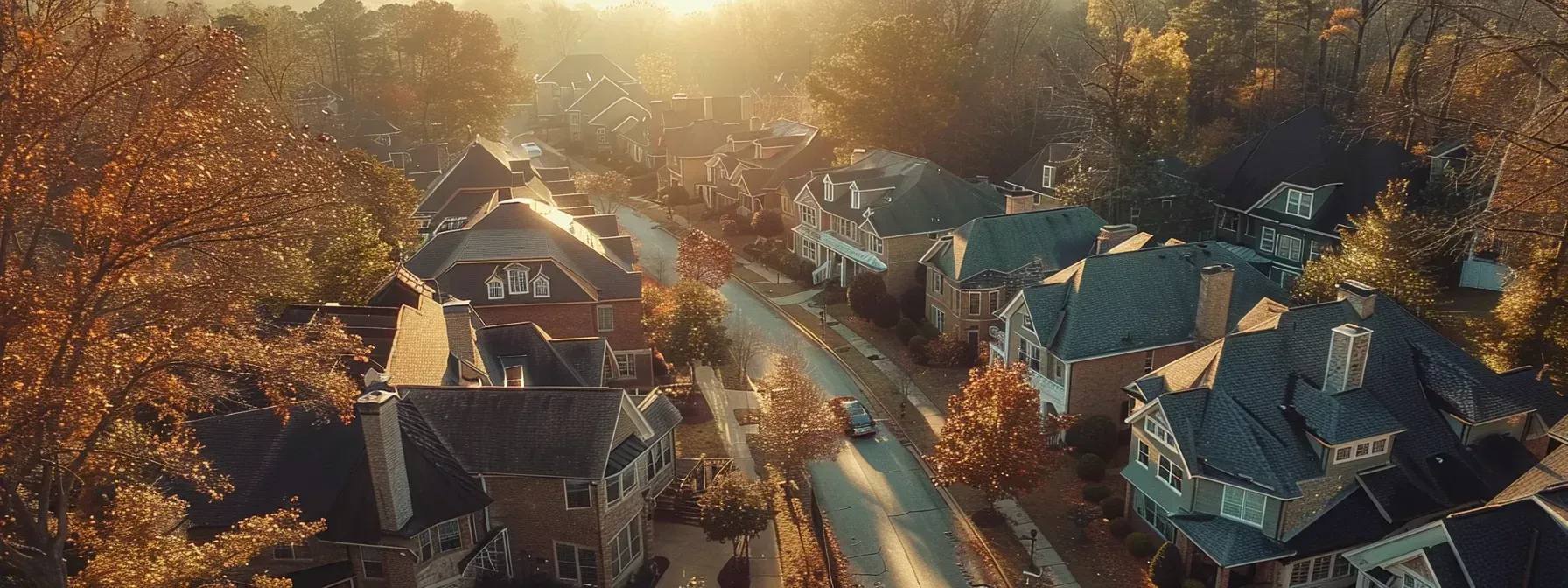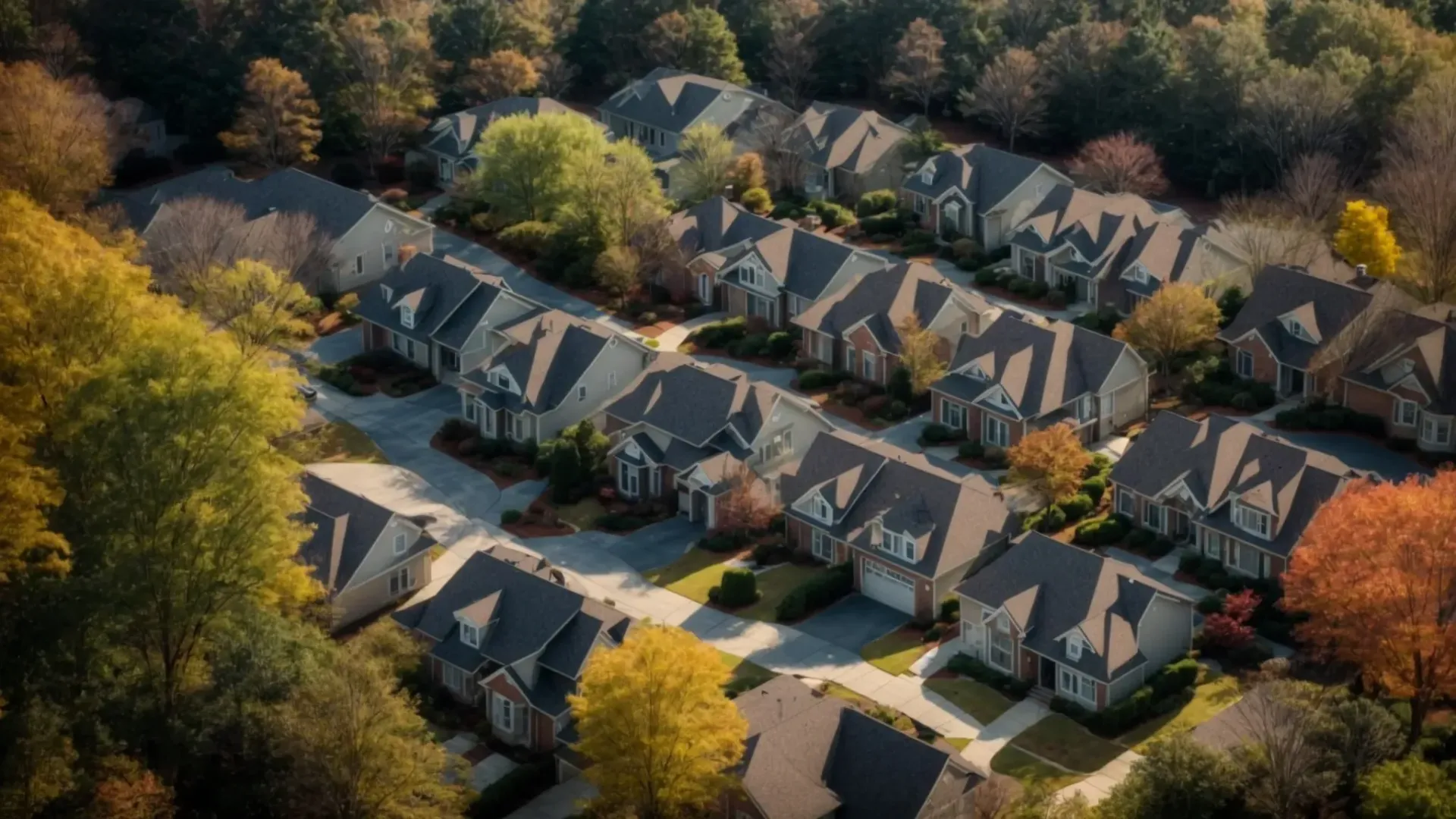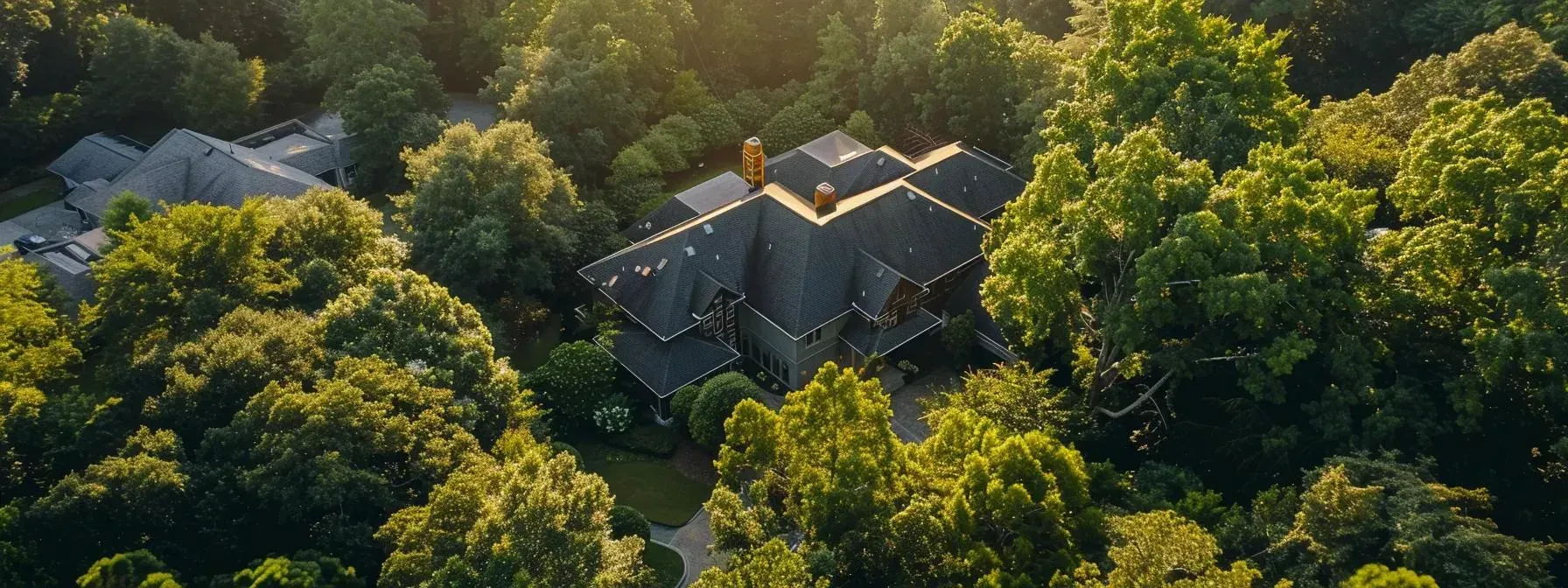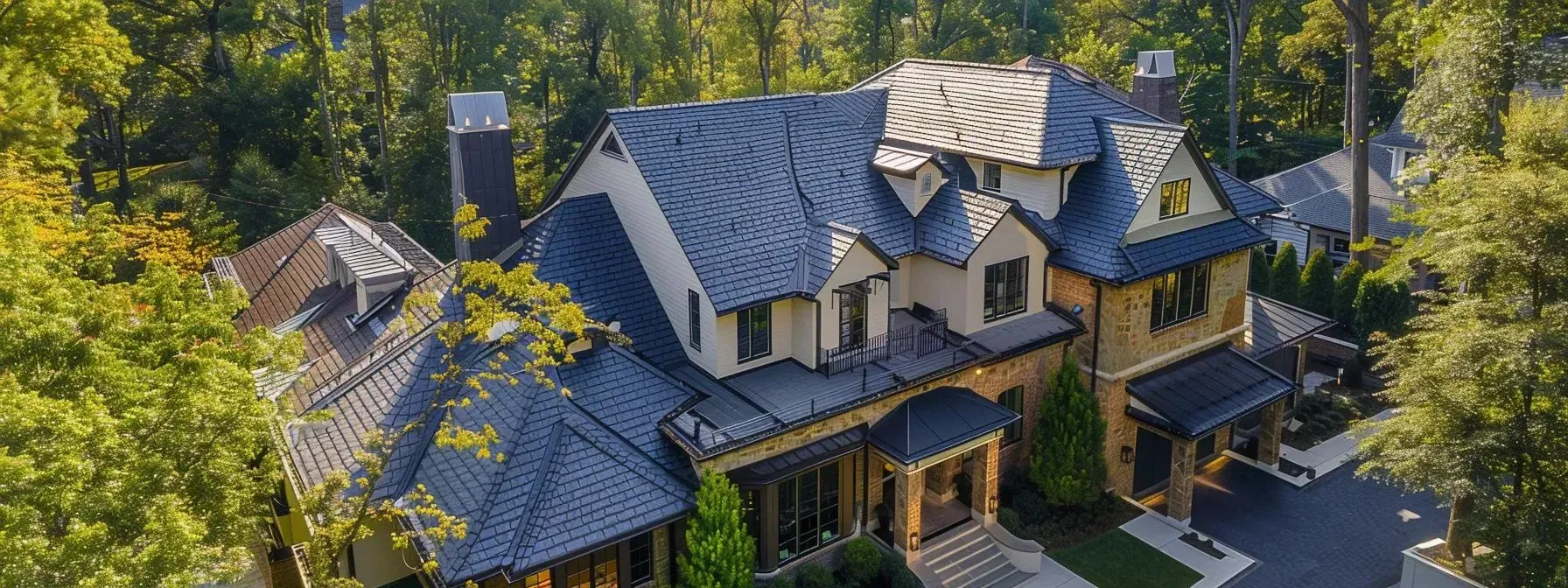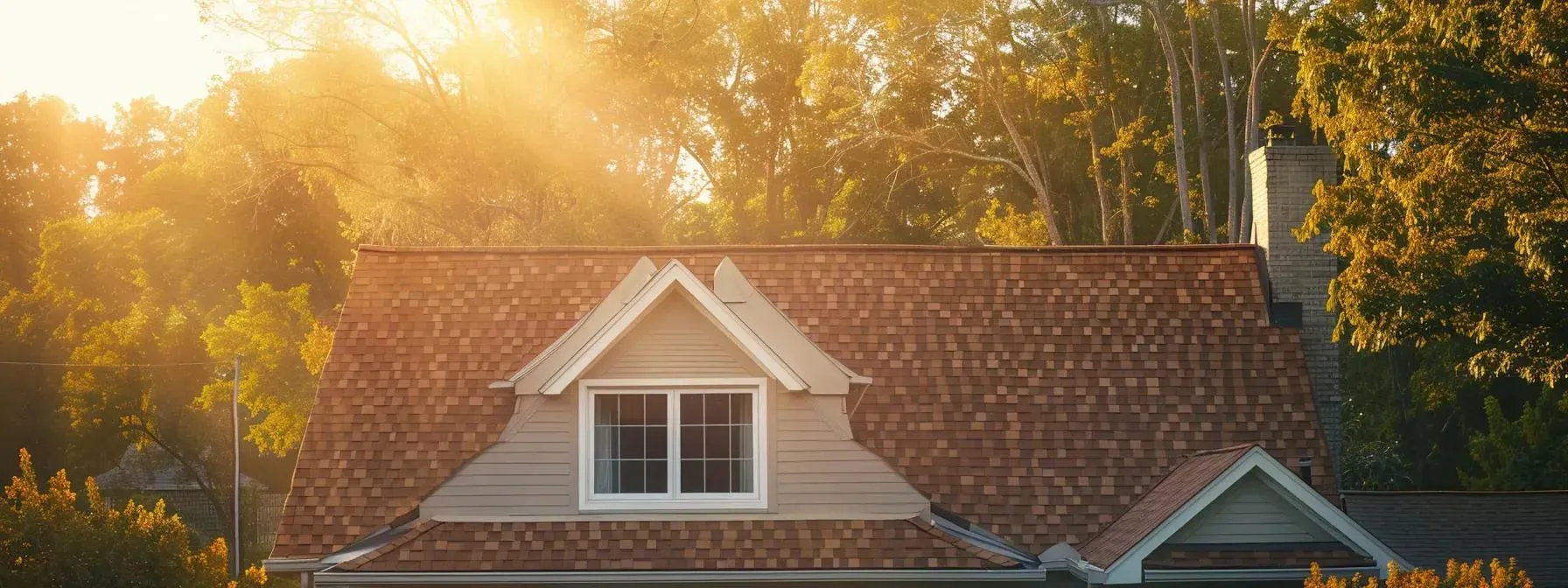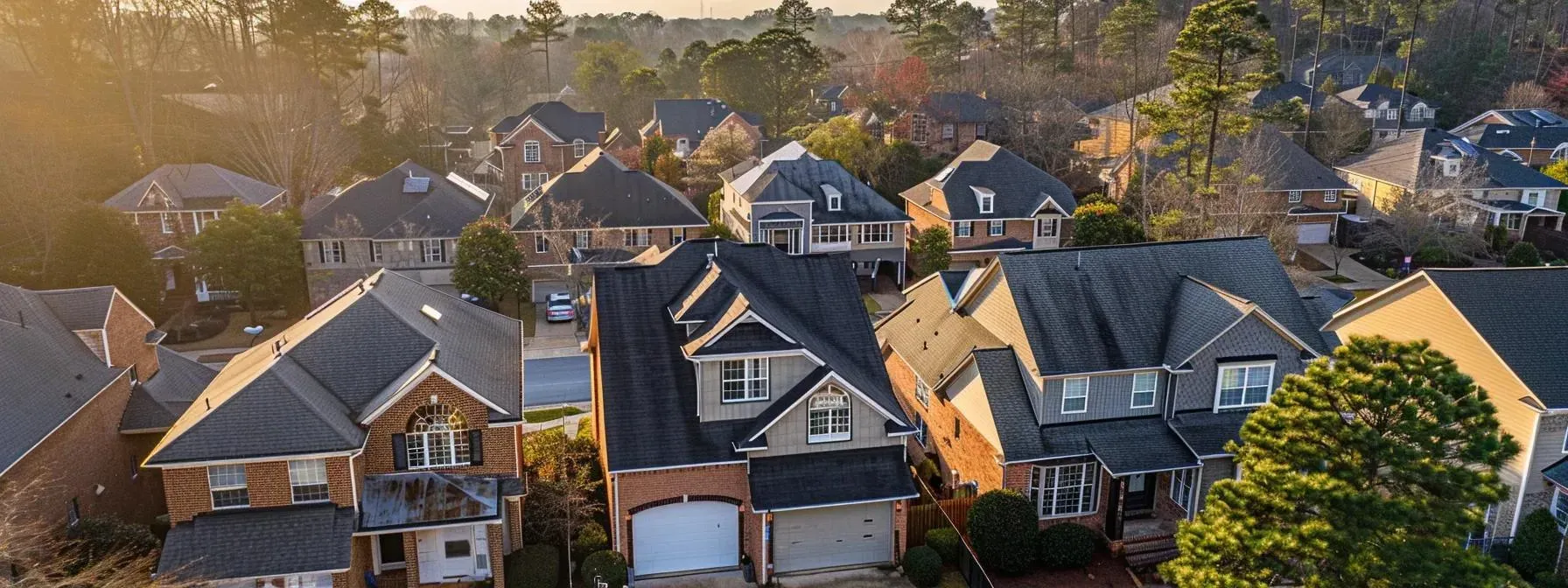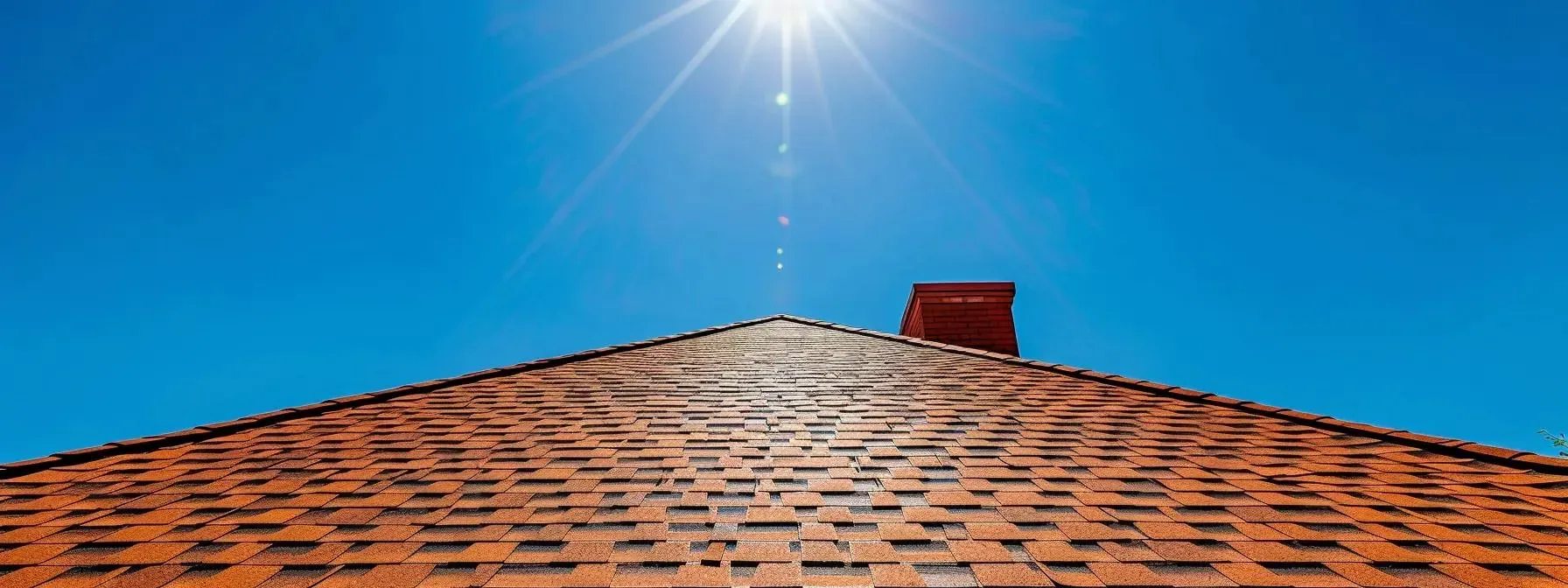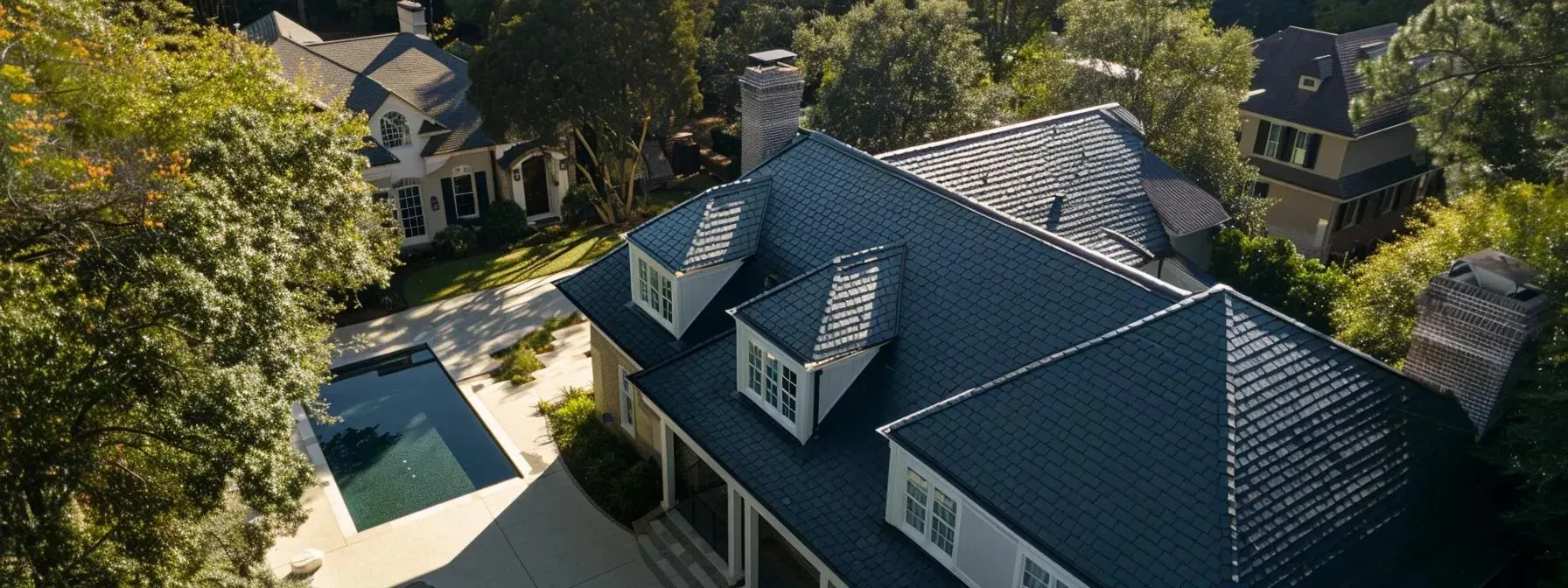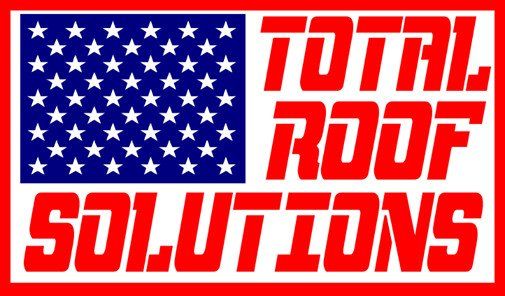Selecting the Ideal Flat Roof System for Atlanta Businesses
As an Atlanta business owner, you know how crucial it is to maintain your building. Proper maintenance will save on repairs and yield significant energy cost reductions. There are many roofing options for flat-roof buildings, and choosing the right one can make or break your expected savings. Knowing which one to choose can guarantee success.
Selecting the right flat roof system is crucial for Atlanta businesses facing the unique challenges of the local climate. With the roofing industry evolving, understanding the options available can lead to better decisions for durability and sustainability. This article will explore various flat roof systems suitable for commercial properties, compare materials, and highlight key factors in making the ideal choice. By addressing common pain points, such as maintenance and energy efficiency, this content aims to guide business owners in selecting a roof that meets their needs and enhances their property’s value.
Understanding the Roofing Needs of Atlanta Businesses
Atlanta businesses face unique commercial roofing challenges due to the region's climate, which includes severe weather conditions that can impact flat roofs. Common roofing problems, such as leaks and drainage issues, often arise, making it essential for business owners to consult a qualified roofing contractor. Additionally, the type of building—whether it features a green roof or metal roofing—can significantly influence the selection of the ideal commercial roof system.
Climate Challenges Affecting Flat Roofs in Atlanta
Atlanta's climate presents specific challenges for flat roofs, particularly during the summer months when high temperatures and heavy rainfall can lead to significant wear and tear. Business owners must be aware that flat roofs are more susceptible to pooling water, which can cause leaks and necessitate timely roof repair. Utilizing high-quality adhesive and sealant products can help mitigate these issues, ensuring that the roof remains watertight and durable against the elements.
Moreover, the choice between a flat roof and a metal roof can greatly influence a building's long-term performance. While metal roofs offer excellent durability and reflectivity, flat roofs require careful consideration of materials and installation techniques to withstand Atlanta's weather patterns. Engaging a qualified roofing contractor can provide valuable insights into the best options for flat roofing systems, ensuring that businesses are well-equipped to handle the unique climate challenges of the region.
Common Roofing Problems Faced by Local Businesses
Local businesses in Atlanta often encounter common roofing problems that can significantly impact their operations. One of the most prevalent issues is leaks, which can lead to water damage and disrupt daily activities. Engaging professional commercial roofing services is essential for timely roof installation and repairs, ensuring that businesses maintain a safe and functional environment for employees and customers alike.
Another challenge faced by Atlanta businesses is the need for energy efficiency in their roofing systems. Poorly installed roofs can lead to increased energy costs, as they may not provide adequate insulation. By consulting with experienced roofing contractors, businesses can select the right materials and installation techniques that comply with Occupational Safety and Health Administration standards, ultimately enhancing both safety and energy performance.
The Impact of Building Type on Roof Selection
The type of building significantly influences the selection of a commercial flat roofing system in Atlanta. For instance, structures that require high durability may benefit from thermoplastic roofing, which offers excellent waterproofing and resistance to hail damage. In contrast, buildings with lower traffic may find bitumen roofing to be a cost-effective solution, providing reliable protection against the elements while ensuring longevity.
Additionally, the intended use of the building plays a crucial role in roof selection. For example, businesses that house sensitive equipment or inventory may prioritize waterproofing features to prevent leaks and water damage. Engaging with a knowledgeable roofing contractor can help business owners assess their specific needs and choose the most suitable flat roofing system that aligns with their building type and operational requirements.
Exploring Flat Roof Systems Suitable for Atlanta
When selecting a flat roof system for Atlanta businesses, several options stand out. TPO roofing systems offer energy efficiency and durability, while EPDM roofing provides excellent weather resistance. Modified bitumen systems combine flexibility and strength, and PVC roofing options are known for their longevity. Built-Up Roofing (BUR) systems deliver reliable waterproofing, making them suitable for various commercial applications. Each option aligns with building codes and can enhance commercial roof repair strategies, often backed by strong warranties.
Benefits of TPO (Thermoplastic Olefin) Roofing Systems
TPO (Thermoplastic Olefin) roofing systems are an excellent choice for Atlanta businesses seeking a reliable flat roof replacement. These membranes are known for their energy efficiency, which can significantly reduce cooling costs during the hot summer months. The reflective properties of TPO help to keep buildings cooler, making it a practical option for business owners looking to enhance thermal insulation while minimizing energy expenses.
In addition to energy savings, TPO roofing systems offer durability and resistance to various weather conditions, which is crucial for Atlanta's climate. The material is designed to withstand UV exposure and harsh elements, reducing the likelihood of leaks and the need for frequent roof replacement. By choosing TPO, businesses can ensure long-term protection for their assets, ultimately contributing to a safer and more efficient operational environment.
Advantages of EPDM (Ethylene Propylene Diene Monomer) Roofing
EPDM (Ethylene Propylene Diene Monomer) roofing offers significant advantages for Atlanta businesses seeking durable commercial roofing systems. This type of roofing is known for its exceptional weather resistance, making it ideal for the region's fluctuating climate. EPDM roofs can withstand heavy rainfall and UV exposure, reducing the likelihood of leaks and the need for frequent maintenance, which is crucial for business operations.
Another benefit of EPDM roofing is its energy efficiency. The material can be coated to enhance its reflective properties, helping to keep buildings cooler during the hot summer months. This energy-saving feature not only lowers cooling costs but also contributes to a more sustainable construction approach. By choosing EPDM, business owners can ensure a reliable roofing solution that meets their operational needs while minimizing long-term expenses.
Features of Modified Bitumen Roofing Systems
Modified bitumen roofing systems are a popular choice for Atlanta businesses due to their durability and ease of installation. These systems consist of multiple layers, providing enhanced protection against leaks and debris accumulation. When considering a commercial roof replacement, business owners can benefit from the flexibility and strength that modified bitumen offers, making it a reliable option for various building types.
Additionally, modified bitumen roofs are designed to withstand the region's weather conditions, reducing the need for frequent roof repair. Engaging experienced commercial roofing contractors ensures proper installation, which is crucial for maximizing the lifespan of the roof. A reputable commercial roofing company can guide business owners in selecting the right materials and techniques, ultimately leading to a more efficient and long-lasting roofing solution.
Considering PVC (Polyvinyl Chloride) Roofing Options
PVC (Polyvinyl Chloride) roofing systems are an innovative roofing option for Atlanta businesses seeking durability and efficiency. These systems are known for their excellent waterproofing capabilities, which are essential in preventing leaks and water damage. Proper installation, including effective flashing techniques, is crucial to ensure that the roofing system performs optimally and withstands the region's weather conditions.
Engaging professional roofing services for PVC roofing installation can provide business owners with peace of mind. Regular inspection and maintenance of PVC roofs can extend their lifespan and enhance energy efficiency, making them a cost-effective choice for commercial roofing. By selecting PVC, businesses can benefit from a reliable roofing solution that meets their operational needs while minimizing long-term repair costs.
Overview of Built-Up Roofing (BUR) Systems
Built-Up Roofing (BUR) systems are a reliable choice for Atlanta businesses seeking durable flat roofing solutions. These systems consist of multiple layers of asphalt and reinforcing fabrics, providing excellent waterproofing capabilities that help prevent water damage. With proper installation and regular commercial roof maintenance, BUR systems can withstand the region's weather challenges, ensuring long-lasting protection for business assets.
Additionally, BUR systems can be enhanced with silicone coatings or combined with materials like polyvinyl chloride (PVC) for improved performance. For instance, Versico offers innovative BUR solutions that integrate these materials, further enhancing durability and energy efficiency. By selecting a BUR system, business owners can achieve a robust roofing solution that meets their operational needs while minimizing the risk of leaks and costly repairs.
Comparing Materials for Flat Roof Systems
When selecting the ideal flat roof system for Atlanta businesses, it is essential to compare various materials based on durability and lifespan, energy efficiency, maintenance requirements, and installation processes. Understanding the longevity of options like EPDM rubber and concrete can guide business owners in making informed decisions. Additionally, evaluating costs and timeframes for installation will help ensure a smooth roofing project with the right roofer.
Durability and Lifespan of Different Roofing Materials
When evaluating the durability and lifespan of different roofing materials for businesses in metro Atlanta, it is essential to consider how each material performs under local climate conditions. For instance, EPDM roofing is known for its long lifespan, often exceeding 20 years, and its ability to withstand heavy rainfall and UV exposure. This makes it a reliable choice for flat roofing systems, especially when combined with effective drainage solutions to prevent water pooling, which can lead to leaks and damage.
Additionally, incorporating a roof coating can significantly enhance the durability of flat roofs by providing an extra layer of protection against the urban heat island effect prevalent in metro Atlanta. This effect can increase roof temperatures, leading to accelerated wear. By selecting materials that are designed to reflect heat and utilizing a reputable flat roofing company for installation, business owners can ensure their roofs remain functional and efficient for many years, ultimately reducing maintenance costs and extending the lifespan of their roofing systems.
Energy Efficiency and Environmental Considerations
Energy efficiency is a critical factor for businesses in Atlanta when selecting a flat roof system. Commercial roofing options like TPO and EPDM are designed to reflect sunlight, which can significantly reduce cooling costs during the hot summer months. By investing in energy-efficient roofing materials, business owners can lower their utility bills while contributing to a more sustainable environment.
Environmental considerations also play a vital role in the decision-making process for commercial roofing in Atlanta. Many roofing materials are now available with eco-friendly options, such as those made from recycled content or designed to be fully recyclable at the end of their lifespan. Choosing these materials not only helps businesses meet sustainability goals but also enhances their reputation among environmentally conscious consumers.
Maintenance Requirements and Costs
Maintenance requirements and costs vary significantly among different flat roof systems, making it essential for Atlanta businesses to consider these factors when selecting a roofing solution. For instance, TPO and EPDM roofs typically require less frequent maintenance due to their durable materials, which can lead to lower long-term costs. However, regular inspections are still necessary to identify potential issues early, ensuring that the roof remains in optimal condition and preventing costly repairs down the line.
On the other hand, modified bitumen and built-up roofing systems may demand more attention and maintenance, particularly in areas prone to debris accumulation. Business owners should factor in these maintenance needs when budgeting for their roofing projects. Engaging a professional roofing contractor can provide valuable insights into the specific maintenance requirements of each roofing material, helping businesses make informed decisions that align with their operational needs and financial considerations.
Installation Processes and Timeframes
The installation process for flat roof systems in Atlanta varies depending on the chosen material. For instance, TPO and EPDM roofing typically require a straightforward installation, often completed within a few days, allowing businesses to resume operations quickly. In contrast, modified bitumen and built-up roofing systems may take longer due to their multi-layered construction, which necessitates careful application to ensure durability and effectiveness against the region's weather challenges.
Timeframes for installation can also be influenced by weather conditions and the complexity of the building structure. Engaging a qualified roofing contractor can help streamline the process, as they can assess the specific needs of the business and provide a realistic timeline. By understanding the installation requirements and potential delays, business owners can better plan for their roofing projects, ensuring minimal disruption to their operations while achieving a reliable and efficient flat roofing solution.
Key Factors in Selecting the Ideal Flat Roof System
When selecting the ideal flat roof system for Atlanta businesses, several key factors must be considered. Assessing the specific needs of the business ensures that the chosen roofing solution aligns with operational requirements. Budgeting for both initial costs and long-term investment is crucial, as is ensuring compliance with local building codes. Additionally, roof accessibility and safety features play a significant role in maintaining a secure environment for maintenance and inspections.
Assessing Your Business's Specific Needs
Assessing a business's specific needs is crucial when selecting the ideal flat roof system in Atlanta. Business owners should consider factors such as the building's purpose, the type of equipment housed within, and the potential for foot traffic on the roof. For instance, a facility storing sensitive materials may require a roofing system with superior waterproofing capabilities to prevent leaks and protect valuable assets.
Additionally, understanding the local climate and its impact on roofing materials is essential. Atlanta's weather can be unpredictable, with heavy rainfall and high temperatures affecting roof performance. By consulting with a qualified roofing contractor, business owners can identify the most suitable materials and installation techniques that align with their operational requirements, ensuring long-term durability and efficiency for their flat roofing systems.
Budgeting and Long-Term Investment
Budgeting for a flat roof system involves not only the initial installation costs but also the long-term investment in maintenance and repairs. Business owners in Atlanta should consider the lifespan of different roofing materials, as options like TPO and EPDM may have higher upfront costs but offer significant savings over time due to their durability and lower maintenance needs. By evaluating the total cost of ownership, businesses can make informed decisions that align with their financial goals.
Additionally, investing in a quality flat roof system can enhance energy efficiency, leading to reduced utility bills. For instance, roofs with reflective properties can help lower cooling costs during Atlanta's hot summers. By prioritizing energy-efficient materials and proper installation, businesses not only protect their assets but also contribute to long-term savings, making it a wise financial strategy for any commercial property owner.
Compliance With Local Building Codes
Compliance with local building codes is a critical factor when selecting a flat roof system for Atlanta businesses. These codes are designed to ensure safety, durability, and energy efficiency in roofing installations. Business owners must work closely with qualified roofing contractors who are familiar with these regulations to avoid potential fines and ensure that their roofing systems meet all necessary standards.
Understanding the specific requirements of Atlanta's building codes can help business owners make informed decisions about their roofing options. For example, certain materials may be mandated for fire safety or energy efficiency, impacting the overall cost and performance of the roof. By prioritizing compliance, businesses can protect their investments and ensure that their roofing systems provide reliable protection against the region's weather challenges.
Roof Accessibility and Safety Features
Roof accessibility is a critical factor for Atlanta businesses when selecting a flat roof system. Easy access allows for regular inspections and maintenance, which are essential for prolonging the lifespan of the roof. Business owners should consider installing safe access points, such as ladders or walkways, to facilitate maintenance tasks and ensure that roofing professionals can perform their duties without risk of injury.
In addition to accessibility, safety features are paramount in protecting both workers and the building itself. Implementing guardrails, safety harnesses, and proper drainage systems can prevent accidents and water pooling, which can lead to leaks and structural damage. By prioritizing these safety measures, business owners can create a secure environment for maintenance activities, ultimately safeguarding their investment in the flat roofing system.
Case Studies of Successful Flat Roof Installations in Atlanta
This section explores successful flat roof installations in Atlanta, highlighting various applications of roofing systems. Retail spaces have benefited from TPO roofing, while industrial facilities have effectively utilized EPDM systems. Additionally, office buildings have found success with modified bitumen roofs. Each case provides valuable lessons learned, offering practical insights for businesses considering their roofing options.
Retail Spaces Benefiting From TPO Roofing
Retail spaces in Atlanta have increasingly turned to TPO roofing systems due to their energy efficiency and durability. For instance, a local clothing store recently upgraded to TPO roofing, which significantly reduced their cooling costs during the hot summer months. The reflective properties of TPO not only help maintain a comfortable indoor environment but also contribute to lower energy bills, addressing a common concern for business owners.
Moreover, TPO roofing has proven to be a reliable choice for retail establishments facing the region's unpredictable weather. A popular grocery store chain in Atlanta experienced fewer leaks and maintenance issues after installing TPO roofing, allowing them to focus on their operations without the worry of water damage. This practical solution highlights how TPO roofing can enhance the longevity and performance of retail spaces, making it an ideal option for businesses looking to invest in a durable flat roofing system.
Industrial Facilities Using EPDM Systems
Industrial facilities in Atlanta have increasingly adopted EPDM (Ethylene Propylene Diene Monomer) roofing systems due to their exceptional durability and weather resistance. For example, a manufacturing plant recently installed an EPDM roof, which has effectively withstood heavy rainfall and UV exposure, minimizing the risk of leaks and costly repairs. This choice not only enhanced the facility's operational efficiency but also provided peace of mind regarding long-term roof performance.
Moreover, the energy efficiency of EPDM roofing has proven beneficial for industrial operations. A local warehouse reported significant reductions in cooling costs after upgrading to an EPDM system, thanks to its ability to reflect sunlight and maintain a stable indoor temperature. By selecting EPDM roofing, businesses can ensure reliable protection against Atlanta's climate while also achieving cost savings on energy bills.
Office Buildings With Modified Bitumen Roofs
Office buildings in Atlanta have successfully utilized modified bitumen roofing systems to enhance their durability and performance. For instance, a prominent corporate office recently installed a modified bitumen roof, which provided excellent protection against leaks and weather-related damage. This roofing solution not only improved the building's overall integrity but also reduced maintenance costs, allowing the business to allocate resources more effectively.
The flexibility and strength of modified bitumen roofs make them an ideal choice for office environments that experience varying foot traffic and equipment loads. A local law firm benefited from this roofing system, as it effectively withstood the demands of regular maintenance activities while ensuring a safe working environment. By selecting modified bitumen, these office buildings have achieved reliable roofing solutions that align with their operational needs and contribute to long-term sustainability.
Lessons Learned From Local Businesses
Local businesses in Atlanta have learned the importance of selecting roofing materials that align with their specific operational needs. For instance, a retail store that opted for TPO roofing discovered that its energy-efficient properties significantly reduced cooling costs during the summer months. This choice not only enhanced the store's comfort but also contributed to lower utility bills, demonstrating the financial benefits of investing in the right flat roof system.
Another key lesson from Atlanta businesses is the value of engaging experienced roofing contractors for installation and maintenance. A manufacturing facility that installed an EPDM roof found that regular inspections and proper maintenance were crucial in preventing leaks and extending the roof's lifespan. By prioritizing professional services, businesses can ensure their roofing systems remain effective against the region's challenging weather conditions, ultimately safeguarding their investments and operations.
Choosing a Trusted Roofing Professional in Atlanta
Experience with flat roof systems is crucial when selecting a roofing professional in Atlanta. Business owners should evaluate contractor credentials and references to ensure reliability. It is also important to ask potential roofing partners specific questions about their expertise. Additionally, securing warranties and aftercare services can provide peace of mind, ensuring long-term support for the roofing investment.
Importance of Experience With Flat Roof Systems
Experience with flat roof systems is essential for roofing professionals in Atlanta, as it directly impacts the quality of installation and long-term performance. A contractor with a proven track record understands the specific challenges posed by the local climate, such as heavy rainfall and high temperatures, and can recommend the most suitable materials and techniques. This expertise helps ensure that the chosen flat roof system not only meets the business's operational needs but also complies with local building codes.
Moreover, an experienced roofing contractor can identify potential issues early in the installation process, preventing costly repairs down the line. For instance, they can assess drainage solutions to avoid water pooling, a common problem with flat roofs. By selecting a trusted professional with extensive knowledge of flat roofing systems, business owners can feel confident that their investment will provide reliable protection and enhance the overall efficiency of their commercial property.
Evaluating Contractor Credentials and References
When evaluating contractor credentials, Atlanta business owners should prioritize licensed, insured, and bonded roofing professionals. This ensures that the contractor meets industry standards and is equipped to handle the specific challenges associated with flat roofing systems. Checking for certifications and affiliations with reputable organizations can also provide insight into the contractor's commitment to quality and ongoing education in roofing practices.
References play a crucial role in assessing a contractor's reliability and performance. Business owners should request a list of past clients and follow up with them to inquire about their experiences. Positive feedback regarding timely project completion, quality of workmanship, and effective communication can indicate a contractor's ability to deliver satisfactory results for flat roof installations, ultimately helping businesses make informed decisions for their roofing needs.
Questions to Ask Potential Roofing Partners
When selecting a roofing professional in Atlanta, business owners should ask about the contractor's experience with flat roof systems. Understanding their familiarity with various materials, such as TPO and EPDM, can provide insight into their ability to recommend the best options for specific business needs. Additionally, inquiring about past projects and client references can help gauge the contractor's reliability and quality of work.
Another important question to consider is the warranty and aftercare services offered by the roofing contractor. A reputable professional should provide clear information about the warranty coverage for both materials and workmanship. This assurance not only protects the investment but also indicates the contractor's confidence in their services, ensuring that businesses receive ongoing support for their flat roofing systems.
Securing Warranties and Aftercare Services
Securing warranties and aftercare services is a critical step for Atlanta businesses when selecting a roofing professional. A reputable contractor should provide clear warranty options that cover both materials and workmanship, ensuring that any potential issues are addressed without incurring additional costs. This assurance not only protects the investment but also reflects the contractor's confidence in their services, giving business owners peace of mind regarding the longevity of their flat roof system.
In addition to warranties, aftercare services play a vital role in maintaining the roof's performance over time. Regular inspections and maintenance can prevent minor issues from escalating into costly repairs, which is especially important in Atlanta's unpredictable climate. By choosing a contractor who offers comprehensive aftercare services, businesses can ensure their roofing system remains in optimal condition, ultimately safeguarding their assets and enhancing operational efficiency.
